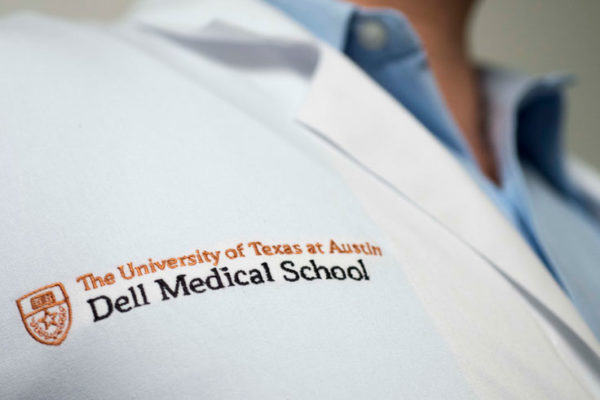AUSTIN, Texas – Dell Medical School at The University of Texas at Austin is accelerating innovation and research by creating a Biomedical Data Science Hub to help solve complex research and clinical problems.
Imagine having a complicated scientific question: How do we predict who will be diagnosed with Type 2 diabetes based not only on clinical and family history, but also on lifestyle, community factors, work life and medical history?
The answer could improve the lives of millions because it could lead to early, simple, preventive interventions. That’s the power of big data analytics in health care: It uses huge amounts of a population’s data and state-of-the-art analysis methods to boil it down to a small core of information to potentially help prevent individual illnesses and large-scale epidemics, cure disease, personalize medical care, reduce expenses and more.
Currently, Dell Med’s data core scientists are carefully extracting and curating health data from myriad sources to provide a fuller, more detailed picture of all the factors – clinical and nonclinical – that affect our community. But the data are scattered and can be difficult and time-consuming to work with and understand.
The Biomedical Data Science Hub will tap into that data and figure out the best way to use that data effectively and efficiently to answer important, timely local questions, such as how to prevent and best treat diabetes. It will help analyze the data to fully represent the target population, advise whether to use classical analyses versus the latest machine learning technique, and assist in identifying other resources at UT Austin that could help optimize the study’s potential so the results could quickly and efficiently inform clinical and public health practice.
“To increase the pace of innovation in health, high-quality data needs to be ubiquitous and analysis much richer, and that’s what we’re trying to achieve with the data hub,” said Clay Johnston, M.D., Ph.D., dean of the medical school.
“UT already has so much strength in this area, and now it’s about directing that toward the key questions in health including addressing health inequities in our community,” Johnston said.
“The Biomedical Data Science Hub is the next natural component to complement Dell Med’s data core, because that’s how we will be able to target the right problems with the right approaches and know whether the improvements made are actually working for individuals and the community as a whole,” said Bill Tierney, M.D., chair of Dell Med’s Department of Population Health.
Accomplished Informatics Leader to Head Data Hub
Quantitative scientist Paul Rathouz, Ph.D., will serve as the founding director of the Biomedical Data Science Hub and as a professor in the Department of Population Health.
“Dell Medical School is poised to make the study and advancement of human health, health care and preventive medicine a fully evidence-based and data-driven endeavor,” said Rathouz.
“The state of data science is at a most exciting threshold society-wide, with new analytic, predictive and computational techniques — but in human health and health care, we have only begun to benefit from this revolution. In the end, the answers to most questions come down to the quality, treatment and interpretation of the data,” he said.
In addition to building and managing this resource, Rathouz will recruit faculty and staff biostatisticians and epidemiologists, among others, and he will conduct research focused on the intersection of data and health.
“Through his leadership, Dr. Rathouz will leverage UT Austin’s considerable human and technical fire power across disciplines to enhance health and health care delivery,” said Chris Webb, Ph.D., chief research officer and associate dean for research at Dell Med.
Rathouz joins Dell Med from the University of Wisconsin-Madison’s School of Medicine and Public Health, where he was the chair of the Department of Biostatistics and Medical Informatics for the past eight years.
Fostering Collaboration Across UT’s Landscape
The Biomedical Data Science Hub’s team of computer, information and statistical scientists will collaborate with those at other UT Austin and UT System entities including the Cockrell School of Engineering, the College of Natural Sciences, the College of Liberal Arts, the Texas Advanced Computing Center, the LBJ School of Public Affairs, the UTHealth School of Public Health and others to develop new ways to analyze complex clinical and nonclinical health-related data.
“A framework involving basic and clinical research could catalyze a lot of collaborations, accelerate discoveries and open up new research fields that we wouldn’t otherwise think of individually,” said Hans Hofmann, Ph.D., director of UT’s Center for Computational Biology and Bioinformatics.
“As a researcher, when I see that someone across campus is grappling with the same problem I have, it opens up the possibility of us working together. That’s what I’m hoping that making these large sets of data available to the community will do for us,” said Hofmann.




